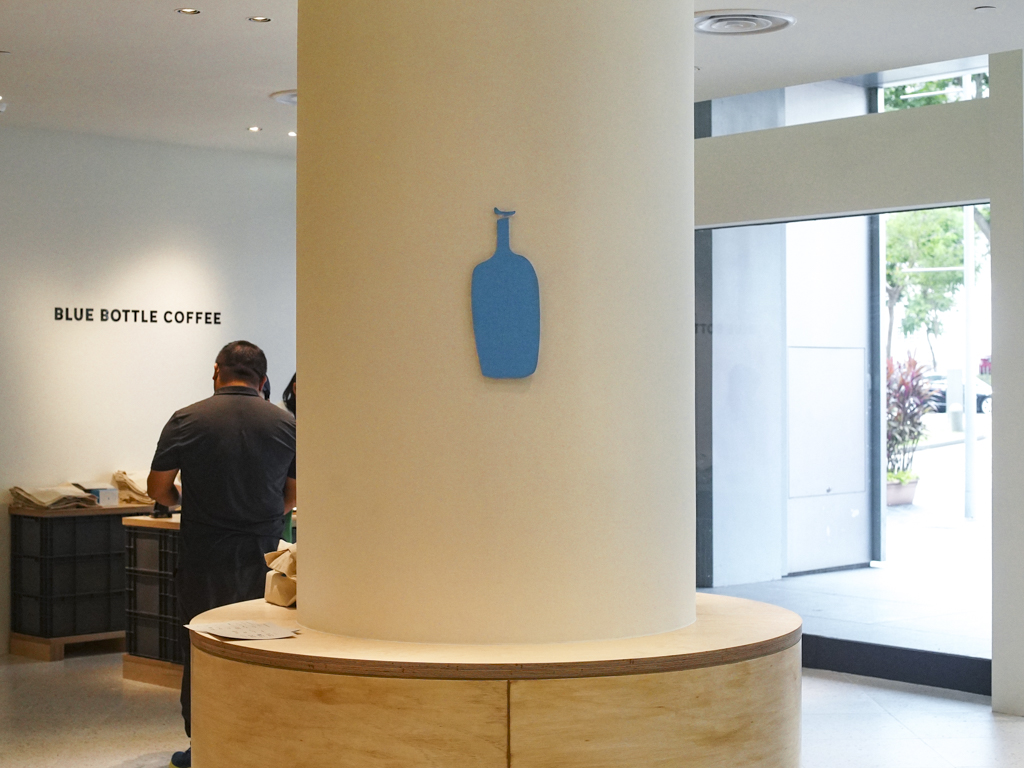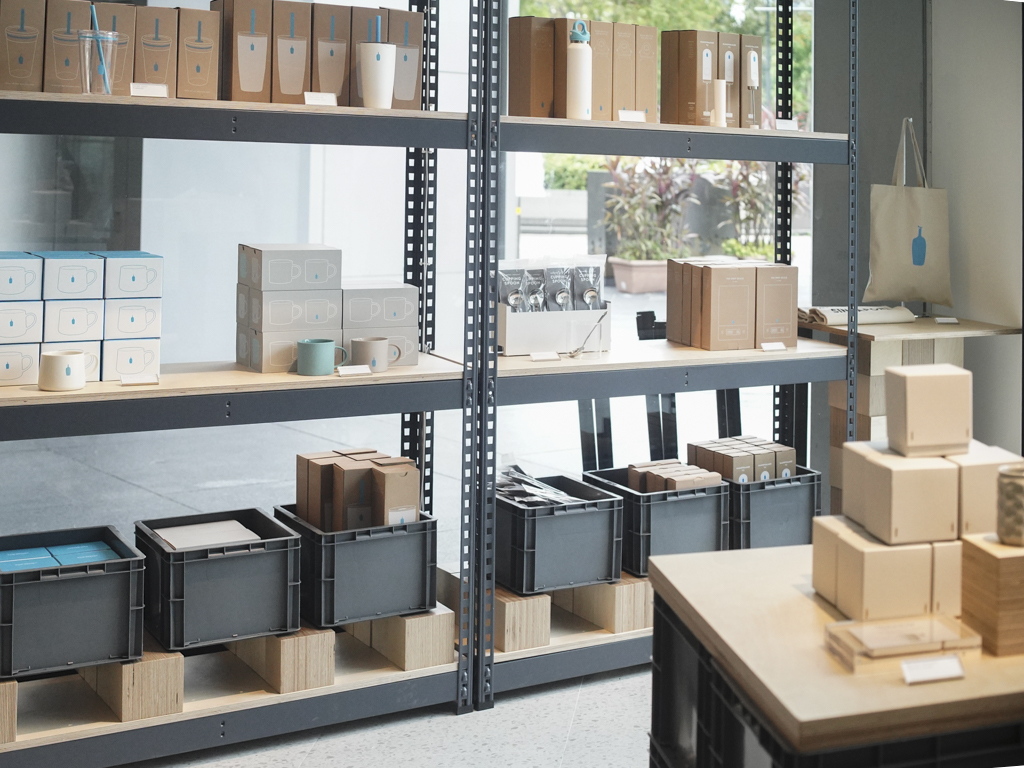Blue Bottle Coffee Singapore: World-famous coffee brand finally opens first SEA store at Raffles City

Coffee enthusiasts in Singapore have probably been letting out squeals of excitement all week. Why, you ask? Well, the world-famous Blue Bottle Coffee is finally in Singapore!
Those who aren’t as fervent about their caffeinated drinks might not be familiar, but the coffee roaster is probably one of the most beloved coffee brands around the world.

First founded in 2002 in Oakland, California, Blue Bottle Coffee has exploded into one of the most prolific brands in the world, now found in major cities all over the world, including New York, Seoul and Tokyo.
Honestly, this opening took a lot longer than we expected, especially considering the deluge of international brands that have flooded our city in recent years.
But it’s never too late, as Blue Bottle Coffee’s first Singapore location is now officially open at Japanese fashion retailer Lumine’s swanky new flagship store at Raffles City.

Well, not exactly, since Blue Bottle Coffee’s Singapore outlet is at present only focused on retail operations.
The official word is that this is the first step towards introducing the full Blue Bottle experience to Singapore and the region.
While plans for expansion are still brewing, it’s likely that they will be opening a string of outlets when the kinks are inevitably worked out.
So, no coffee runs for now, but you can stock up on instant coffee for convenient caffeine doses throughout the day, or grab yourself some stylish merch — it’s a less overdone alternative to Stanley cups and Starbucks tumblers!
Blue Bottle Coffee’s instant coffee

But don’t let the lack of fresh coffee deter you from visiting. As unlikely as it sounds, Blue Bottle Coffee actually crafts some pretty damn solid instant coffee.
In an exclusive coffee workshop hosted for the media by the brand’s experienced coffee trainers, we were given a taste of the coffee.

We were served the craft instant espresso (single-serve, five packets for S$24) prepared with milk and by itself. It’s very simple — just empty the packets, pour some hot water over it, give it a swirl, and it’s ready to go.
By itself, Blue Bottle Coffee’s instant espresso is fragrant and comes with elegant notes of fruity acidity, while also boasting a nice, deep finish.
When milk is added, the coffee remains smooth and balanced with pleasant fruitiness — not at all too bitter or dark.

Our verdict? Despite being instant coffee, it is seriously legit — surprisingly, we might even go out on a limb and say it’s better than the a la minute espresso-based coffee you get at some trendy brunch spots.
There are also options for a craft instant espresso multiserve jar (S$51) if you’d like to adjust your volume or craft matcha tin (S$51) for all the matcha girlies out there.
While coffee workshop sessions are currently not open to the public, Blue Bottle Coffee is looking to open them to the public later in the year.
Merch, cups and stuff

Let’s be honest, global titans such as Starbucks and Blue Bottle Coffee are not just all about coffee — many of the fans clamour for the merch, as well.
Which means the retail space is a good chance to get your hands on some shiny new cups and stuff, besides the instant beverages.
If you’re not keen on jumping on the Stanley or Owala bandwagons, the drinkware might entice you.
On-the-go paraphernalia includes the commuter cup with straw (16 oz, S$55), Go bottle (S$79), clear cold tumbler (S$55). All three come in minimalist designs, primarily clad in white and accented with blue.

For home use, there are also the blue bottle mug (S$33) and stone mug set (S$68), as well as coffee accessories, including a V60 drip scale (S$99) and Subminimal’s Nanofoamer milk frother (S$79) that can come in handy for homebrewers.
Of course, if you’re already a Blue Bottle Coffee fan, you can also rep the brand by walking out with the Singapore tote (S$39), which comes with the logo printed on one side and the word Singapore printed on the other.
Either way, if you’re a coffee lover, it’ll be a cool idea to make a trip down and maybe get yourself some drinkware or instant coffee.
More importantly, watch this space and look out for Blue Bottle Coffee’s future openings, where you can actually try its coffee!
This was a hosted event.
For more ideas on what to eat, read our stories on Telok Ayer’s best dining spots for CBD dwellers and where we think you should go for a jinjja tasty Korean meal.
Do explore the new GrabFood Dine Out service for awesome deals.
You can also book a ride to Blue Bottle Coffee’s first Singapore outlet at Raffles City
Blue Bottle Coffee (Singapore)
Raffles City Shopping Centre, 01-01, 252 North Bridge Road
Nearest MRT: City Hall
Open: Monday to Sunday (10am to 10pm)
Raffles City Shopping Centre, 01-01, 252 North Bridge Road
Nearest MRT: City Hall
Open: Monday to Sunday (10am to 10pm)







